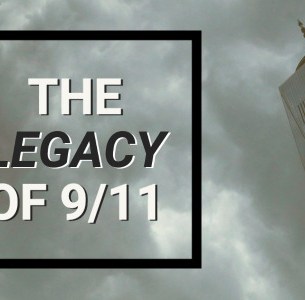 “Journalism has been changed forever. It’ll never be the same again.”
“Journalism has been changed forever. It’ll never be the same again.”
In so many words, the editor of the Columbia Journalism Review set the tone and thrust of the lead editorial he wanted me to write for his next edition. Like many Americans, he was reeling from the stunning terrorist attack on the United States a few days earlier. The country was in a state of shock: everything, it seemed, suddenly turned upside down, including the journalism he had practiced his entire professional life. In this post-9/11 chaos, he was certain of only one thing: the way the news was reported would never be the same again.
Almost immediately, I knew we had a big problem: I didn’t agree with him. To my way of thinking, the terrorist attack would undoubtedly have a major impact on the country’s domestic and foreign policies. It would be, in journalistic jargon, “a big story,” the kind that generated Pulitzer Prizes, but the underlying raison d’être of journalism — to report unflinchingly on these changes, to continue to speak truth to power, no matter how controversial the issue — would not be changed by the attack. The surprised CJR editor strongly disagreed, arguing that I was missing the main point: that the nation’s fundamental institutions, including journalism, had already been changed by the attack. No doubt about that, he insisted.
Now, 20 years later, an illuminating paradox snaps into focus: the editor was actually right, but his reasoning was faulty. Journalism has indeed changed, but not because of 9/11. By the time foreign terrorists attacked the American mainland, journalism was already in the midst of a sweeping communications revolution that was transforming the industry. Eye-opening new technologies had erupted, fundamentally altering its economic and financial substructure; a new cast of characters with competing political outlooks and objectives had begun to occupy the airways and dominate the headlines; and serious questions arose about whether the “press,” the only industry protected by the First Amendment of the U.S. Constitution, could fairly and honestly cover the historic changes splitting the country apart.
From the old world of paper, pencil, and typewriter journalism came the thundering hoof beats of the internet and social media, Facebook and Twitter, and many other offspring of the new technologies. So swift and massive were these changes that journalism itself began searching for a new definition of its central purpose — “Are we now supposed to make news, or just cover it?” Many puzzled journalists, comparing Fox News to The Washington Post, for example, wondered if their audiences knew the difference between barely disguised propaganda and serious, substantive news; and even if they did, whether they’d care. In this helter-skelter madness, everything, everywhere, was suddenly at everyone’s fingertips; concepts of distance and time vanished; and traditional journalistic ethics and standards came to look like odd treasures from a lost past.
Journalism, in its pre-revolutionary garb, had tried valiantly to be objective in its coverage of foreign news. But though this effort would sometimes fail, it was the operating norm for most journalists. Yet, in the immediate aftermath of 9/11, the healthy skepticism that had been normal in most American newsrooms suddenly became a scarce commodity. An upsurge in old-fashioned patriotism began to color the coverage of the Bush administration’s response to the terrorist attacks. Accepted as truth, even by experienced journalists, were “deep background” warnings about Iraqi President Saddam Hussein’s hidden “weapons of mass destruction,” warnings that were then splashed, unchecked, on the front pages of the nation’s press.
Also, in a number of broadcast studios, one could not help but notice anchormen sporting American flags in their jacket lapels. Reporters wanted so much to be seen as supporters of America’s war against global terrorism. CBS anchor Dan Rather, who did not wear an American flag in his lapel, later spoke of “a fear in every newsroom in America… the fear of being stuck with some label, unpatriotic or otherwise.”
After 9/11, the new technologies also had a transformative effect on the way foreign news was covered. Enter the wildly revealing era of the “eco-system,” in which undefined, unfiltered news circulating by cell phone or WhatsApp tempted everyone’s appetites and needs, and overnight journalism leaped into a new phase of its ever-changing universe.
A fascinating succession of political uprisings and revolutions erupted in Eastern Europe and the Middle East and North Africa. Acting as a catalyst of political change, the audacious cell phone quickly acquired the awesome power of a tank. Held over the heads of disgruntled activists, it conveyed to a waiting world the images, sounds and drama of revolutionary change. It inflated reality, sometimes creating reality. It also served as an essential instrument of communications, rallying both allies and sympathetic observers, converting what might have been a manageable show of unhappiness into an exploding revolt. Without the cell phone, connecting to Twitter and Facebook, a local skirmish would likely have remained a backwater story, one day in the headlines and then gone, lacking the multiplying, explosive force of the internet to inspire a mass movement.
The cell phone, in the hands of a cunning activist with a gnawing grievance but no budget, has thus become a crucially important tool of revolution, bringing any street corner outburst of anguish to the journalist’s attention, providing editors and anchormen with that day’s “big story.” Whether in New York or Tehran, everyone in the news business was immediately hooked into the story, excitedly part of the evolving drama. Now the universal challenge was rushing the story on air or into print. Speed was of the essence.
In the old days, the process of reporting a story was usually the result of “gather, sort, report” — in that order. First, you gathered the information. Then, you sorted it out, meaning you checked the facts, and edited the copy. And only then did you report the story to the public. In the new era, you flipped the sequence. Now you gathered and immediately reported, no sorting or editing or checking required.
Operating on this questionable but generally accepted standard, journalists covered the revolts of the early 21st century. In one Arab capital after another, the marriage of the new technologies to widespread political grievance produced a surprisingly “spring”-like explosion of popular discontent so powerful it toppled regimes and ignited a false belief that democracy was replacing authoritarianism in the Arab world. Within a few years, the joyous hopes of Cairo’s Tahrir Square collapsed, replaced by the cruel reality of a tank reimposing authoritarian constraints.
But, in Ukraine, in 2014, magically, the reverse was true, as workers and students, using mostly the cell phone to organize, coordinate, and inspire change, overthrew a corrupt, pro-Russian regime and established a shaky but independent government still struggling for political and economic stability and international acceptance and support.
Journalism, fashioned by the new technologies, has become the ubiquitous companion of politicians and revolutionaries, democrats and dictators, everywhere. The games they play, and the revolts they spawn, are still the bread-and-butter stories that absorb the journalist’s attention.
9/11 was one such story, big, important, damaging in its impact, but hopefully instructive for the questions it raised for the nation’s consideration. One such question revolves around the deepening politicization of the media, accentuated by former President Donald Trump’s non-stop criticism of the journalist as an “enemy of the people,” a theme both wrong and dangerous, but widely embraced by his conservative adherents. For them, Fox News represents “fair and balanced” truth and The New York Times, for example, represents an unacceptable blend of lies and liberalism. This division severely complicates the journalist’s central responsibility, which remains unchanged despite the powerful effects of 9/11 on this country. In my judgment, the American journalist remains at his/her best when they rise to protect the ruled over the rulers — who, let’s face it, often govern on sometimes nutty and flawed assumptions about how their power is to be used.
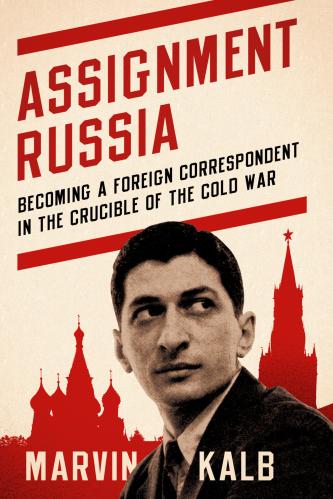
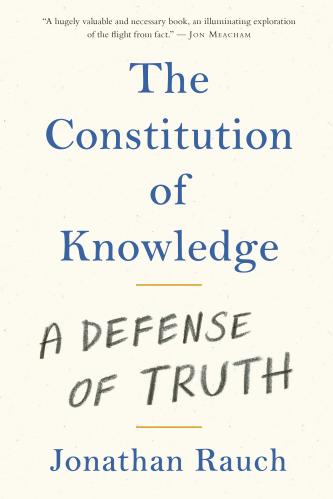
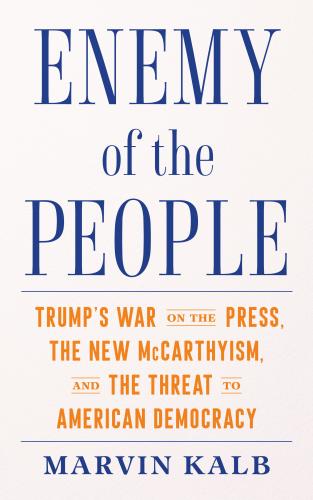
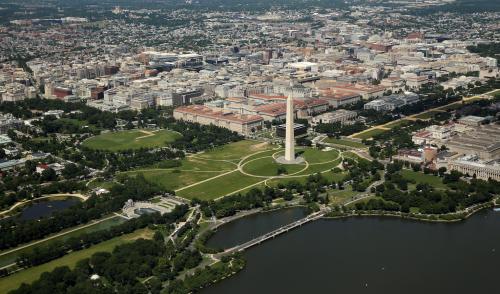
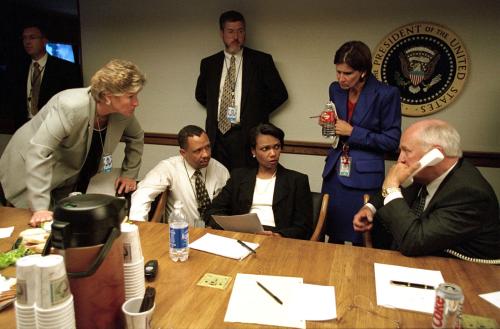
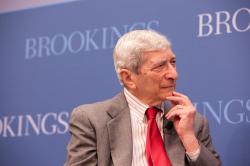

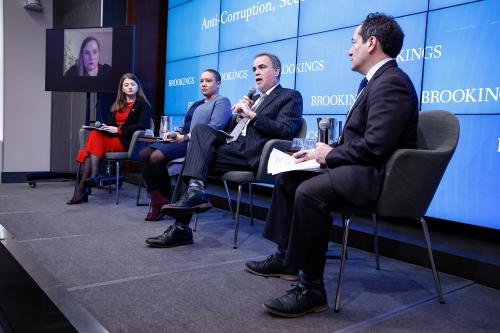
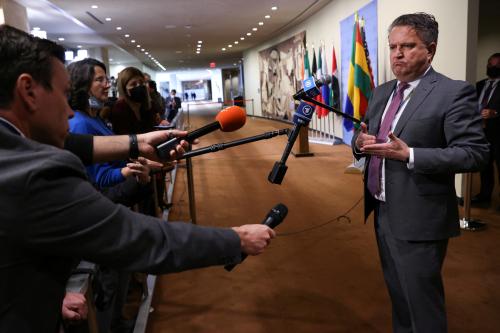
Commentary
Journalism after 9/11
August 25, 2021